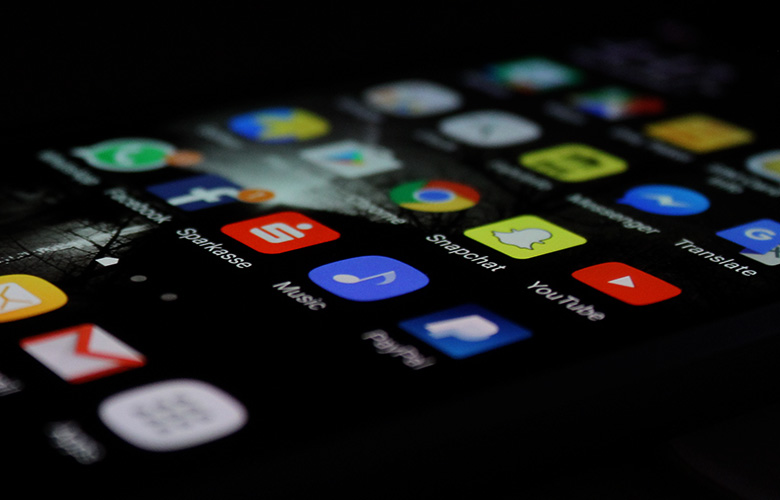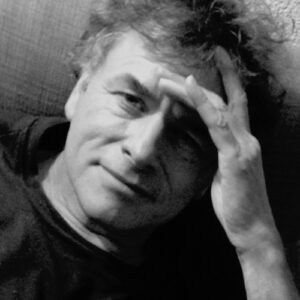
A colleague who was directing a college production of Waiting for Godot told me that during rehearsals the sophomore playing Estragon turned to her and said, “If my character is ‘waiting’ wouldn’t he check his text messages?” When I teach Introduction to Theatre, I take “Twitter breaks” so the itchy-fingered freshman can reconnect. When I write plays, I worry about any line that might cause the slightest offense, for as an Artistic Director warned me, “All it takes is one disgruntled patron with an I-phone to start an internet-fueled boycott.” No doubt the digital age has changed the theatre, but the big problem is algorithms.
But more, Romeo and Mercutio would never have considered the possibility of going to a party at the Capulets in the first place because in the so-called “information age” algorithms would make them unaware that the Capulets were having a party. William Inge’s play Bus Stop wouldn’t happen either because Carl, the character of the bus driver, would’ve checked his Weather app before setting out, thus avoiding the snowstorm that traps the characters. And a quick check of 23andMe.com would’ve saved Oedipus a lot of messy self-realization.
Further, many of us are now being trapped in algorithm-generated identities that reaffirm our own correctness and make us forget the common denominators that give us deep empathy for people unlike ourselves. In his book Solitude Michael Harris writes, “We’ve turned into navigation zombies. Without thinking, you follow what Google Maps tells you to do.” (Pg. 119) This causes our “way-finding skills to atrophy.” As a result, “you won’t be exposed to things you don’t know, things you haven’t loved yet. Personal growth becomes stunted, and the idea of what you “like” grotesquely caricatured.” (Pg. 107)
As with self-driving cars, self-driving theatre is never lost, it always knows what is around the corner because everything is well-charted territory. As an example, here is a list of the most popular plays currently being produced by high schools in the US (according to Playbill):
o Almost, Maine
o A Midsummer Night’s Dream
o You Can’t Take It With You
o Noises Off
o Twelve Angry Men
(People)
o Alice in Wonderland
o The Crucible
o Our Town
o A Christmas Carol
o Neil Simon’s Fools
What do they have in common? Yes, they’re all good plays, but they’re old (only one was written in the 21st century). They have something else in common; they’re all well-charted territory. Self-driving audiences know exactly what to expect before they enter the theatre. Is this any different from the following shows on Broadway?
o Aladdin
o Beautiful: The Carole King Musical
o Beetlejuice
o Frozen
o Harry Potter and the Cursed Child
o The Lion King
o Moulin Rouge!
o The Phantom of the Opera
o Pretty Woman
o Tootsie
In my opinion, few of us are fish out of water anymore.
Soon we will have Google Theatre. With Google Theatre the audience will use a kiosk in the lobby to dial up their preferred race, sexuality, and gender preference. They will also select their political identity. The actors will then change the story to accommodate the audience’s needs. It’s already happening in literature. Check out “Wattpad,” a platform where writers and readers create user-generated stories that accommodate the reader’s personal preferences.

If you are doing theatre in which the audience agrees with the playwright and looks and acts just like the actors, then you are doing Google theatre. I write this from experience, I’ve done far too much Google Theatre in my life.
Here is my prediction of the top ten plays that Google Theatre will produce in 10 years:
o Adele, Aladdin and The Tower of Doom
o Our House, The Crosby, Stills, Nash & Young Musical
o Twelve Angry Beyoncés
o Almost Frozen
o The Bride of Harry Potter
o The Lion King’s Cursed Child
o Ariana Grande at the Moulin Rouge!
o Fences, the Musical
o A Christmas Carol II
o Neil Simon’s Fools
Arts and Humanities vs. Fascism: Defending Our Education
Ivanka Trump vs Konstantin Stanislavski


William Missouri Downs has had 150 productions of his plays from the Kennedy Center to the San Diego Rep and won numerous playwriting awards including two rolling premieres from the National New Play Network. He’s twice been a finalist at the Eugene O’Neill. He’s published four books on playwriting, screenwriting and the art of theatre. Samuel French and Playscripts have published his plays. He’s also been produced in Spain, South Africa, Singapore, Switzerland, Austria, Israel, India, Russia, and South Korea. In addition he has written for several NBC sitcoms.
Read Full Profile© 2021 TheatreArtLife. All rights reserved.

Thank you so much for reading, but you have now reached your free article limit for this month.
Our contributors are currently writing more articles for you to enjoy.
To keep reading, all you have to do is become a subscriber and then you can read unlimited articles anytime.
Your investment will help us continue to ignite connections across the globe in live entertainment and build this community for industry professionals.